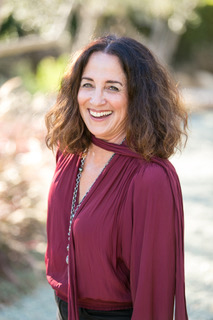My passion for writing began during a dark time in my life. I was ten years old when my grandmother committed suicide in my childhood home. She was my caretaker, and I found her in her bedroom after she’d taken an overdose of sleeping pills.
Amid the chaos of the event, my mother handed me a journal and told me to write down my feelings. I poured my heart and soul onto those pages, and I can still feel the journal’s texture in my hand. It was a hard-covered maroon book with a protective plastic sheath. The pages were of thick paper stock, and at the top of each page was a quote by prophet Kahlil Gibran. Each morning his words inspired my own, which I scribbled with a green fountain pen. I deliberately chose green; it must have been a comforting color for me. Writing transformed me from a broken-hearted, shy little girl into a writer who easily expresses her pain through the written word.
Now, more than fifty years later, I am still navigating through dark times by writing, and my life mission is to help others do the same. Life has always been sprinkled with darkness and light, and these times are no different; however, when we’re submerged in the dark times, we often feel overwhelmed by them. The trick is to do something that shines light on us, whatever that may be. Whether for personal, social, or political reasons, everyone responds and copes differently to darkness. My response has always been to direct the rage to the page.
Perhaps this is because I believe that from all darkness comes light. Elizabeth Lesser, in her book The Seeker’s Guide (1999), says that she has her students create what she calls an “autobiography of joy.” This encourages them to remember and document the happy moments in their lives, and acts as a shiny fishing lure that can be saved and used during darker times when a reminder might be needed to look toward the light.
I am a child of the ’60s, a time when I protested against the Vietnam War and walked barefoot in the park. Those were also troubling times, but many of us stuck together. Interconnectedness and the sharing of stories and beliefs helped us navigate through those years. Lesser also claims that by creating grief stories, we can see the ebbs and flows of our lives and identify the triggers and patterns that move us from one point to the next. Wounded storytellers are those who write about difficult or dark times, but they also have the ability to shine light on those times, believing that from all bad comes good and that things will improve — and that’s one of the many advantages of writing.
Reading poetry is another way out of the darkness and a way to inspire writing. Some poets are particularly skillful at helping to transport readers from darkness to light. When reading the words of poets such as Pablo Neruda, we can become transformed by his passions, memories, regrets, and accessible sensibilities. Neruda’s poem “From Every Day You Play” is a wonderful illustration.
For me, journaling is a place to rehash both joyous and painful memories, and is also a place to vent what’s on our mind. Many authors have used the craft of journaling as a catalyst for survival, including Anaïs Nin, Joan Didion, Reeve Lindbergh, Tobias Wolff, D. H. Lawrence, Isabel Allende, Vivian Gornick, Kathryn Harrison, Charlotte Perkins, Sue William Silverman, and May Sarton. For me — and I’m assuming, many of these writers — the mere act of journaling provided purpose and meaning at a time when there seemed to be no hope. It gave me a reason to wake up in the morning and move on with my day in a positive way.
D. H. Lawrence, for example, sat at his mother’s bedside while she was dying and wrote poems about her. He also began writing an early draft of Sons and Lovers, his novel that explored their complicated, loving, and painful relationship. Marcel Proust wrote Remembrance of Things Past while sick in bed with asthma. Flannery O’Connor wrote some of her best stories while dying from lupus.
Sarton and Nin also used journaling to help pull them through difficult times. In her book Recovering, Sarton chronicles her battles with depression and cancer. Nin used her journals to write to her deranged father, who left the family when she was young. In Nin’s case, her journal entries became a four-volume collection of books.
Writing can help shine the light on darkness and offer hope to both the writer and the reader. Without a doubt, it’s a win-win situation.
For more information about me and my work, check out my website, www.dianaraab.com.
Originally published at medium.com


